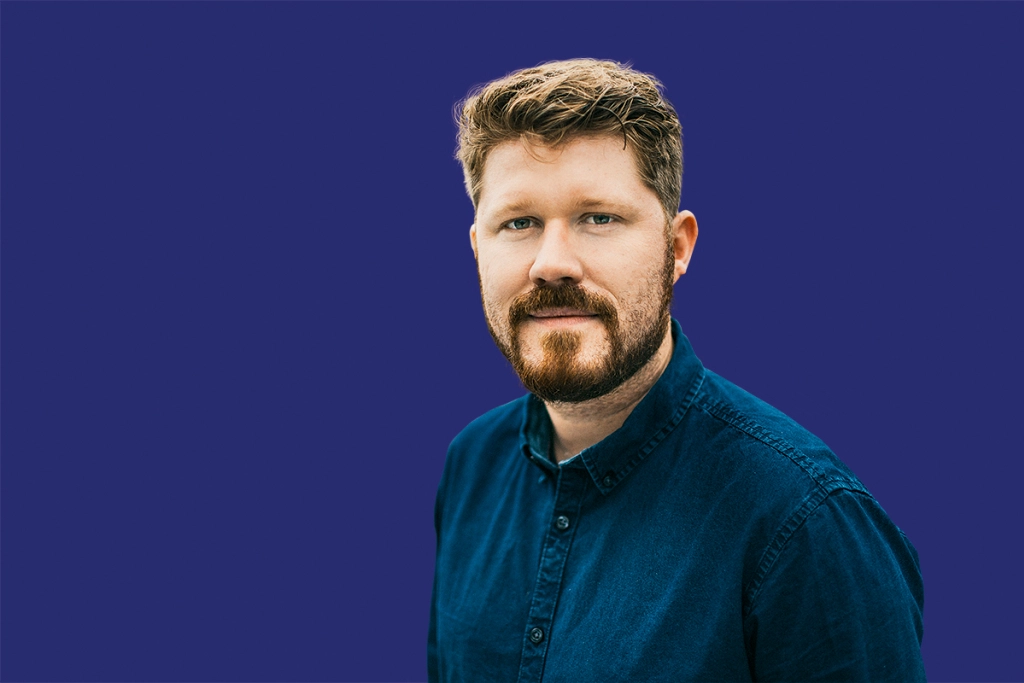RIO DE JANEIRO, BRAZIL – Like many Brazilians, Rafael Matos, from the state of Espírito Santo, wanted to start his own business early on. With his friends Victor Cola, Luciana Sarres, Felipe Sarres, and Thiago Salla, he founded a homemade food restaurant in Vitória in 2014. With the recession and the costs with rent and payroll, the business billed just enough to pay the bills. After a year and a half of operation, the partners decided to close the doors and move on with the remaining capital.
Without many options, Matos bet on an innovative proposal: a restaurant without a dining room, only with delivery – the so-called dark kitchen. At the time, delivery apps like iFood and Rappi were gaining ground in the country, and the partners believed in higher profits with a lean operation.

In 2017, they created ATW Delivery Brands, today one of the largest networks of Brazilian dark kitchens. The company has 250 franchisees that operate fried chicken (N1 Chicken), sandwiches (Gringo Wing’s Planet) and hot dog (Jullius) brands.
Last year, the businesses grossed R$50 million. In 2021, the ambition is to reach R$200 million in revenues. ATW is one of the many innovative companies that have opened in Vitória, the capitol of Espírito Santo. Home of well-known businesses, such as the payment application PicPay and the e-commerce website Wine, the city has created in recent years the “Vale da Moqueca” or Moqueca Valley – a tribute to the American Silicon Valley and “moqueca”, the well-known regional seafood dish .
A kind of “seal of quality” for local companies, the initiative aims to bring together founders of startups, the university community, the local government, and large companies to transform the capital of Espírito Santo into a technology hub. “Vitória is often voted as one of the best cities for entrepreneurship and to live in, but still the ecosystem of startups did not take off,” says Rogério Salume, founder of Wine and Vale da Moqueca. “We studied the examples of Florianópolis, Recife and Belo Horizonte to strengthen the local ecosystem.”
Like Vitória, dozens of Brazilian cities also organize “innovation valleys” to give a push in the dissemination of their startups. It is a phenomenon of capitals such as Teresina (Cajuína Valley, in honor of the typical local drink) and Manaus (Jaraqui Valley, after the name of an Amazon fish), and of medium-sized cities in the interior of Brazil, such as Bauru, where Sandwich Valley is located, referring to the “sanduíche baurú” whose birthplace is a reason for controversy between Bauru and São Paulo citizens. Or Joinville, in the north of Santa Catarina state, which worked with the city’s name when it baptized the city’s innovation ecosystem as Join.Valle.
Although Brazil has more than 13,000 startups, almost 30% are in the state of São Paulo. Calling itself “valley” is, therefore, a creative way for entrepreneurs outside the Rio-São Paulo axis to put their names on the map and attract business. “The name gives an idea of community, so important for startups,” says Felipe Matos, president of the Brazilian Startup Association.
More important than the quality stamp are the concrete actions taken by local authorities to foster these centers of innovation scattered around the country. As they are high-risk businesses, startups need capital, access to markets, a diverse human capital and collaboration spaces – after all, this is the only way to create or refine ideas capable of raising a business from scratch to the top.
“Ecosystems are great wombs of startups,” says Paulo Renato Macedo Cabral, innovation manager at Sebrae Nacional. “It’s different from setting up a traditional business, like a bakery.” Those who bet on the model reap results.
Take Florianópolis, which since the 1980s has encouraged the opening of research centers and, more recently, has given tax benefits to technology-based companies. Today, 14% of the local GDP comes from more than 4,000 technology enterprises installed there. According to Sebrae, initiatives along the lines of the one developed in the capital of Santa Catarina are in another 48 Brazilian cities, and there is the potential to start this work in another 213 relevant urban centers.
But, after all, what brings entrepreneurs together around the idea of a “valley”? Part of the answer lies in having a busy schedule of events to pump up business in a location. One of them, Startup Weekend, created by the American accelerator Techstars, has gained prominence since it arrived in Brazil in 2010, by connecting entrepreneurs, developers, and designers to mentors and investors in events that resemble those in Silicon Valley.
These meetings commonly use the language disseminated by Californian entrepreneurs around the world, as pitch (name given to the presentation sessions of entrepreneurs). In 11 years, Brazilian cities have hosted more than 700 editions of Startup Weekend. Many communities have emerged from these events, such as Cerrado Valley, in Brasília.

In the first local editions, in 2011, the event attracted the few interested in technology in a city that until then had an economy very tied to the government. “The group that didn’t want to work in public service found a common language there,” says Roberto Braga, organizer of Startup Weekend. It was in one of the event’s editions that Braga met Fabricio Buzeto and Gustavo Gorenstein, his partners in BxBlue, a startup founded in 2017 as a public consigned credit marketplace and that today is one of the Cerrado Valley’s references. In January, BxBlue received a capital injection of R$38 million led by the manager Igah Ventures.
In a decade of Startup Weekend, Brasília has changed. Today, there are three technological parks and a national accelerator called Cotidiano. The result: more than 200 startups mapped out and that attract the attention of investors from outside Brazil. One example is Ribon, founded in 2016 as a kind of “charity Spotify,” which offers donation options to encourage philanthropy among young people – today there are more than 30,000 active users. Accelerated by Cotidiano and invested in by Redpoint eventures, Ribon was voted one of the ten most creative companies in the world by the Bill & Melinda Gates Foundation earlier this year.
The “Brazilian Silicon Valleys” only gained more importance when unicorn startups – valued at more than $1 billion – started popping up all over Brazil. Since 2018, when the mobility app company 99 reached that level, the unicorns have been piling up: Nubank, Movile, Gympass, Loggi, QuintoAndar, Ebanx, Wildlife, Loft, Vtex, Creditas, MadeiraMadeira, and Hotmart. The success of these companies showed Brazilian entrepreneurs, the market, and the authorities that there is room in Brazil to develop great innovative businesses.
In Curitiba, where Ebanx and MadeiraMadeira are based, the entrepreneurship ecosystem, called “Vale do Pinhão” (Pine Nut Valley), revolves around these experienced technology companies. Besides the two, the capital of Paraná is also home to three potential unicorns: the startups Contabilizei, Olist, and Pipefy, which have amassed millions of dollars in funding. “Having examples nearby in your city is important to encourage entrepreneurs,” says Fernanda de Melo Magalhães, coordinator of Endeavor, a support network for entrepreneurs. Those who were successful in the entrepreneurial journey can become investors for those who are starting out.
The founders of Ebanx have been doing this for six years and, with the maturity of the ecosystem in Curitiba, decided to create the Honey Island management company to manage the investments – today, there are 14 startups in the portfolio. “The fund started small and is intertwined with our history of mentoring other entrepreneurs in the city,” says André Boaventura, partner at Ebanx. One of the investments is OmniChat, a chat platform for sales on WhatsApp founded in 2015 and that tripled in size in 2020 by serving large clients, such as Arezzo, Boticario and Leroy Merlin, in pandemic.
With that came new funding: in January, it received R$20 million in a round led by Kaszek Ventures. “Having successful entrepreneurs from Curitiba as advisors helped us in the round,” says partner Mauricio Trezub.
Many times the creation of entrepreneurial ecosystems does not have support from the government, but ends up being driven by it. In Belém, Pará, local entrepreneurs founded the Açaí Valley community in 2014. Far from venture capitalists and without favorable public policies, the ecosystem is still incipient: Belém, with 1.5 million inhabitants, has only 47 startups.
Still, some startups have emerged, such as Inteceleri, an education startup created in 2014 and that today invoices R$1.2 million with technologies for the digitalization of math teaching. More than 300,000 students in the North and Northeast regions wear glasses made of fibers from Amazon trees and equipped with a virtual reality technology patented by Inteceleri to study content such as spatial geometry. This year, the startup plans to raise about R$2 million.
Realizing the potential of companies like Inteceleri, the Pará government launched StartUp Pará in 2019, with the goal of supporting startups. The initiative intends to invest R$2.8 million in local startups. “Our innovation scenario in the state is still developing,” says Professor Maria Trindade, coordinator of the program.
At a national level, the government also seeks to deburocratize the regulatory environment to stimulate startups. The Legal Framework for Startups, a bill approved by the Senate in February, currently still in Congress, establishing which companies can fit into the category and guaranteeing more legal security for angel investors, among other benefits.

The challenge in Brazil is that, even with dozens of ecosystems being structured and developed, a good part of the venture capital still goes to companies founded in São Paulo.
Last year, Brazilian startups raised a record amount of US$3.5 billion, but startups from São Paulo concentrated 83% of this amount. Even in “angel” investment, there is an unbalanced division between states. According to data from Anjos do Brasil, 58.5% of its investor base is in São Paulo. “It is necessary to invest in education to train angel investors. It is a specific type of asset that takes time to be understood. And it’s not enough to have a few investors in a region; it’s necessary to have critical mass so that the group can make contributions that will actually supply the startup’s needs,” says Cassio Spina, founder of Anjos do Brasil.
Even though the local ecosystem has good universities, incubators, and mentoring programs, without venture capital the startups don’t survive the initial years of operation. Many, to avoid business failure, end up migrating to other states in search of investment. The move is bad both for the local ecosystems, which lose talent and taxes to another city, and for the entrepreneurs. In a more mature market, such as São Paulo, office costs and technology professionals are higher. In addition, startups run the risk of losing their employees to other large companies willing to pay more for the talent. “Because I’m a guy from the Northeast, I’ve always tried to make investments outside the Rio-São Paulo axis, so I have a lot of contact with entrepreneurs from all over the country. I always warn them that, without the structuring of a local group of angel investors, the ecosystems will lose startups to other regions,” says João Kepler, founder of Bossanova Investimentos.
In Jerimum Valley, an innovation ecosystem in Natal, Rio Grande do Norte, the problem is common. “We have a concern about retaining talent within the park. Many young people graduate here, see opportunities to go to São Paulo and want to live this experience,” says Iris Pimenta, director of the incubator Inova Metrópole, of the Federal University of Rio Grande do Norte. The incubator emerged eight years ago as a way to stimulate local entrepreneurship. First it acted as a physical and intellectual support space for students who wanted to develop innovation projects, helping more than 150 projects.
Four years later, with the support of the municipality, Inova launched the Metrópole Digital Technological Park, so that the more mature technology companies in the region could coexist with new startups. To encourage the initiative, the city offers tax benefits, such as reducing the ISS from 5% to 2%. The Esig Group, one of the largest startups that have passed through Inova Metrópole, is currently based in the technology park. The company, which provides management software for universities and medical centers, employs more than 160 people and is not thinking of leaving the city. “We want to create something in Rio Grande do Norte that can be a national benchmark in technology,” says founder and president Gleydson Lima.
The Covid-19 pandemic ended up bringing the “Brazilian valleys” closer together. Without the possibility of making in-person visits to buy, sell, hire professionals, or even invest, entrepreneurs and investors have become accustomed to doing business by videoconference. For companies outside the central axis of the Brazilian economy, this was good news.
AutoForce, a startup from Natal specialized in digitalizing car dealership sales, for example, needed to send representatives to São Paulo every month to meet with its clients. Shortly before the pandemic, when it signed a contract to be the official partner of Stellantis (owner of brands such as Fiat, Jeep, Citroën, Peugeot) in Brazil, founders Tiago Fernandes, Isaiane de Mendonça, and Clênio Cunha were considering opening a branch in São Paulo to strengthen ties with manufacturers. “After the crisis, there is no longer any need. Everyone went back to their families, and the negotiations are done on video,” says Fernandes.
The trend is that with time investors will start to explore more the potential of startups from valleys other than São Paulo. In the United States, there are already funds that are looking only at businesses outside Silicon Valley and the American East Coast. “Investors have realized that there is a blue ocean of possibilities outside the big centers,” says André Barrence, director of Google for Startups in Latin America. Some initiatives help potentiate this decentralization.
Distrito, a Brazilian startup specialized in open innovation, launched in early April a platform called Hub2Hub, to connect innovation hubs spread throughout Brazil. The intention is to create a single platform to connect whomever. “Today, hubs are disconnected. There are companies from Recife needing technologies that a startup from Porto Alegre could offer, but they don’t connect. Our intention is to create a national network to combat this asymmetry of information,” says Gustavo Araújo, founder of Distrito. The entrepreneurs of Jaraqui Valley, Vale do Pinhão, Vale da Moqueca, and many others spread throughout Brazil are grateful.
Source: Exame

